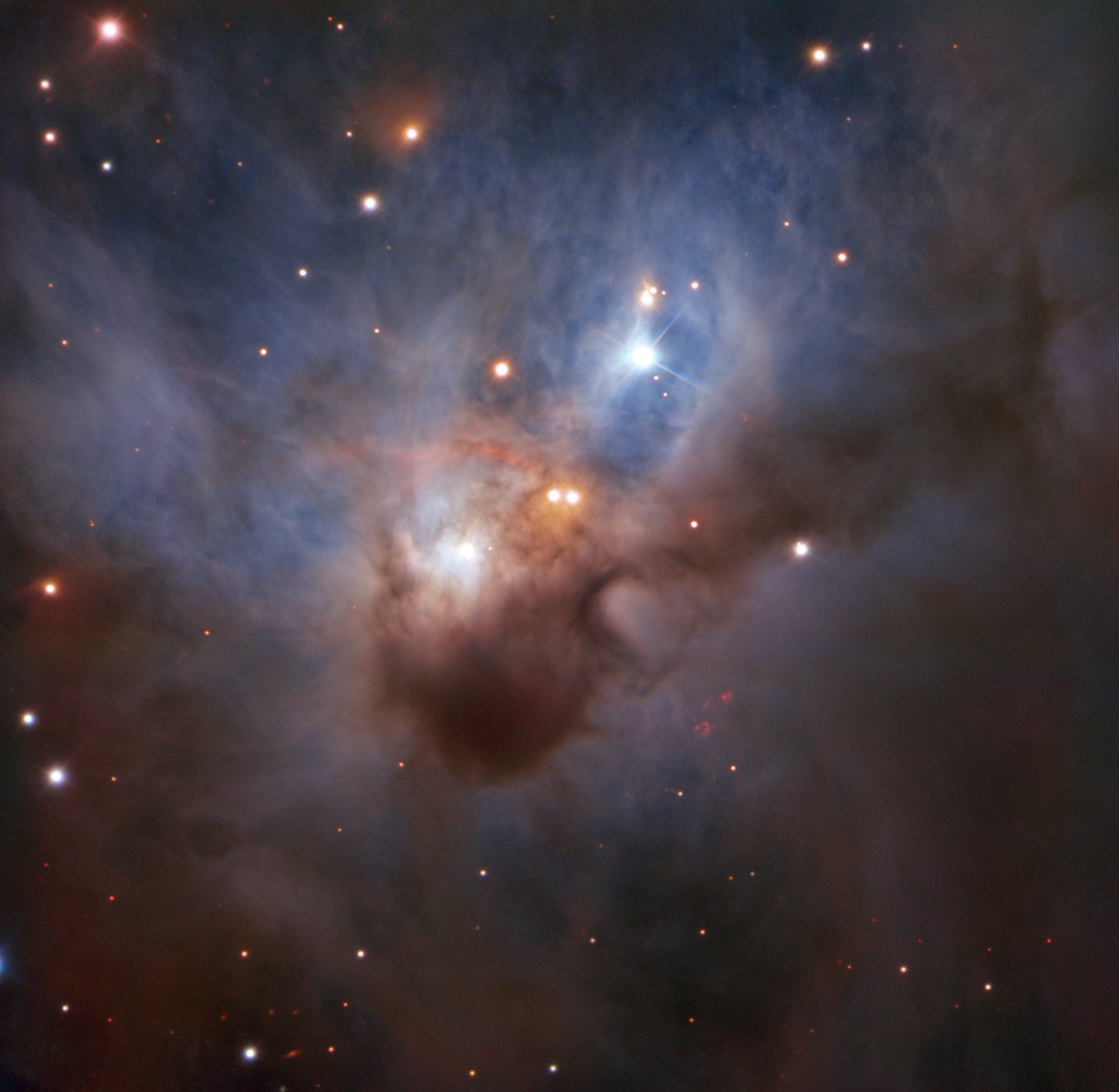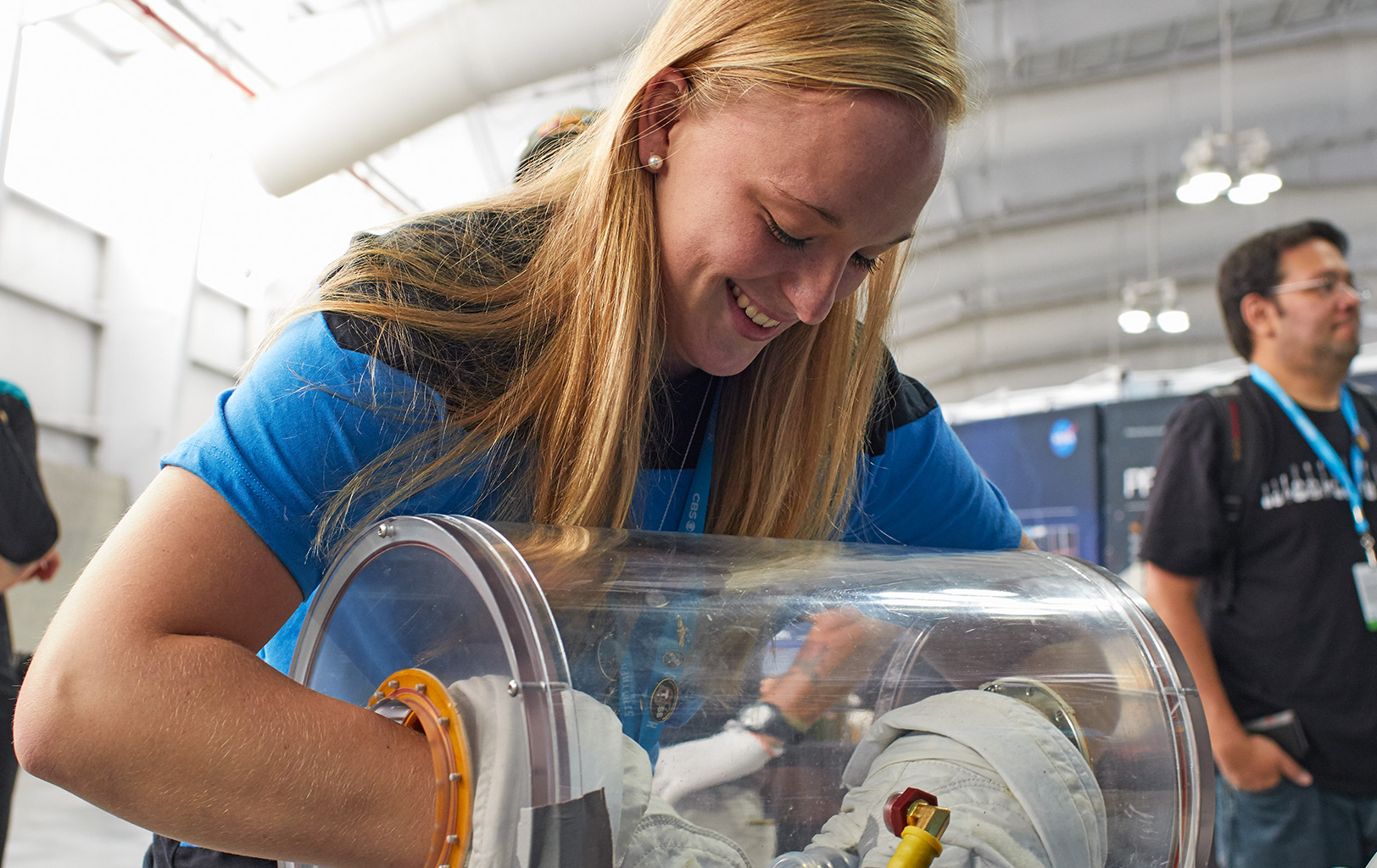Cosmic Bat Nebula Photographed by ESO's Very Large Telescope
A new image from the European Southern Observatory captures a Cosmic Bat tucked away in one of the darkest corners of the Orion constellation.
The Cosmic Bat, formally known as NGC 1788, is a dusty nebula located two thousand light-years from Earth. Taken by the ESO's Very Large Telescope (VLT) in northern Chile, the photo offers a stunning view of the nebula's bat-like wings stretched through interstellar space.
NGC 1788 is a reflection nebula that hosts a group of young stars at its core. While NGC 1788 doesn’t emit light, its clouds of gas and dust reflect the light of the stars, thus illuminating the otherwise dim nebula.
Related: Amazing Space Views of ESO's Very Large Telescope (Photos)

The nebula appears to be isolated in space, far from other cosmic objects in Orion (The Hunter). Therefore, astronomers believe the strong stellar winds of distant stars shaped the nebula, giving the Cosmic Bat its contorted appearance, according to a statement from ESO.
The image was taken using the FOcal Reducer and low dispersion Spectrograph 2, or FORS2, instrument mounted on Antu — one of the VLT's telescopes at the Paranal Observatory.
"Since its first light 20 years ago, FORS2 has become known as 'the Swiss army knife of instruments.' This moniker originates from its uniquely broad set of functions," ESO officials said in the statement. "FORS2’s versatility extends beyond purely scientific uses — its ability to capture beautiful high-quality images like this makes it a particularly useful tool for public outreach."
Get the Space.com Newsletter
Breaking space news, the latest updates on rocket launches, skywatching events and more!
The new image offers the most detailed view of the Cosmic Bat taken to date, and it was captured as part of the ESO's Cosmic Gems program, which is an outreach initiative that uses ESO telescopes and "produces breathtaking images of some of the most striking objects in the night sky," ESO officials said in the statement.
- The Milky Way Arches Over ESO's Very Large Telescope in Amazing Panorama
- The Lagoon Nebula Glistens in Starry Deep-Space Image
- Picture Purrrrrfect! NASA Snaps Incredible Photo of Cat's Paw Nebula
Follow Samantha Mathewson @Sam_Ashley13. Follow us on Twitter @Spacedotcom and on Facebook.
Join our Space Forums to keep talking space on the latest missions, night sky and more! And if you have a news tip, correction or comment, let us know at: community@space.com.

Samantha Mathewson joined Space.com as an intern in the summer of 2016. She received a B.A. in Journalism and Environmental Science at the University of New Haven, in Connecticut. Previously, her work has been published in Nature World News. When not writing or reading about science, Samantha enjoys traveling to new places and taking photos! You can follow her on Twitter @Sam_Ashley13.









